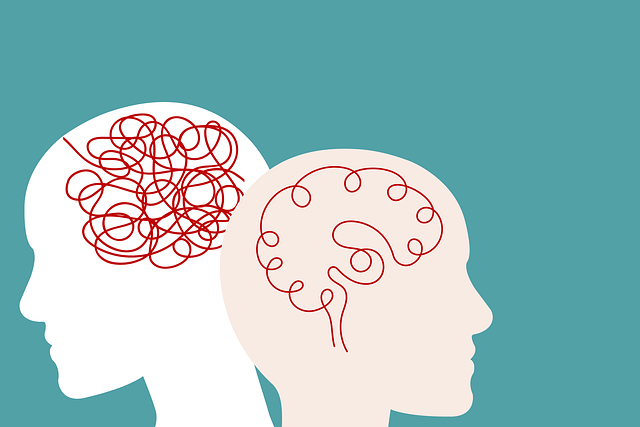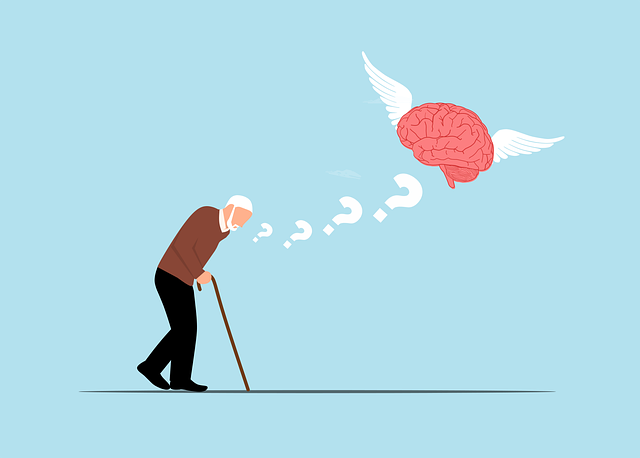Depression significantly impacts daily life and overall well-being, with early signs including persistent sadness, loss of interest, changes in appetite, sleep disturbances, fatigue, and thoughts of self-harm. Recognizing these signs is crucial for prevention and management, making professional support from Lone Tree Womens Issues Therapy essential. They offer personalized guidance, evidence-based strategies, therapy sessions, and coping mechanisms to improve mood and mental health. Building resilience through self-care practices like exercise, mindfulness meditation, and adequate sleep is vital. Consistent effort in seeking professional support and adopting healthy self-care practices ensures long-term mental health stability. Additionally, Lone Tree Womens Issues Therapy provides tailored strategies for lifestyle modifications, risk management planning, and mental health education to prevent and manage depression effectively.
Depression is a prevalent and serious mental health concern, affecting individuals across all demographics. This comprehensive guide explores powerful prevention strategies to empower individuals in their battle against depression. From recognizing subtle signs and symptoms to adopting self-care practices, building resilience, and connecting with support networks, we delve into actionable steps. Additionally, we discuss the transformative role of therapy and counseling, as well as lifestyle modifications tailored for mental well-being. For those seeking specialized care near a lone tree, this article offers valuable insights into women’s issues therapy options available to foster healing and recovery.
- Understanding Depression: Recognizing the Signs and Symptoms
- Building Resilience: Coping Mechanisms and Self-Care Practices
- Seeking Professional Help: The Role of Therapy and Counseling
- Lifestyle Modifications for Mental Well-being
- Support Networks and Social Connections: Battling Loneliness
Understanding Depression: Recognizing the Signs and Symptoms

Depression is a complex mental health condition that can significantly impact an individual’s daily life and overall well-being. Recognizing the signs and symptoms early on is crucial in preventing and managing this illness. It often presents as persistent feelings of sadness, hopelessness, or loss of interest in activities once enjoyed. Individuals may experience changes in appetite, sleep disturbances, fatigue, difficulty concentrating, and even thoughts of self-harm. These symptoms can vary from person to person, but they are key indicators that something is amiss.
Seeking support from a mental health professional, such as those specializing in Lone Tree Womens Issues Therapy, is an essential step towards understanding and managing depression. They can provide personalized guidance and evidence-based strategies to improve mood management and overall mental health. This may include therapy sessions, medication adjustments (if applicable), and the development of healthy coping mechanisms for stress management. By recognizing the warning signs and taking proactive measures, individuals can better navigate their emotional well-being and foster resilience against depression.
Building Resilience: Coping Mechanisms and Self-Care Practices

Building resilience is a crucial component of depression prevention strategies. Coping mechanisms and self-care practices play a significant role in maintaining emotional well-being. Therapies like Lone Tree Womens Issues Therapy offer effective tools to enhance mood management skills, allowing individuals to navigate life’s challenges more adeptly. By fostering confidence boosting techniques, these therapies empower people to develop robust coping strategies tailored to their unique needs.
Self-care practices such as regular exercise, mindfulness meditation, and adequate sleep are essential for promoting emotional well-being. Incorporating these habits into daily routines can buffer against depressive episodes by providing a sense of control and balance. Remember, building resilience is an ongoing process, and consistent effort in both seeking professional support and adopting healthy self-care practices will contribute to long-term mental health stability.
Seeking Professional Help: The Role of Therapy and Counseling

Depression prevention strategies often include seeking professional help, such as Lone Tree Womens Issues Therapy, which plays a pivotal role in managing and mitigating depression. Therapy and counseling provide individuals with a safe space to explore their emotions, thoughts, and behaviors, facilitating self-awareness and personal growth. Skilled therapists employ various evidence-based approaches, including cognitive-behavioral therapy (CBT), mindfulness practices, and emotional intelligence training, to help clients understand and change unhelpful patterns.
Emotional Intelligence (EI) is a key component often integrated into these sessions. Developing EI helps individuals recognize and manage their emotions effectively, improve interpersonal relationships, and make thoughtful decisions. Moreover, Risk Management Planning for Mental Health Professionals and well-designed Mental Health Education Programs can equip practitioners with the skills to support clients in prevention efforts. These programs foster resilience, promote early intervention, and ensure professionals are equipped to handle a diverse range of mental health concerns.
Lifestyle Modifications for Mental Well-being

Lifestyle modifications play a crucial role in preventing and managing depression. Regular physical activity, for instance, has been shown to boost mood and mental resilience. Incorporating daily walks, yoga, or even simple stretching routines can help reduce symptoms of depression and anxiety. A balanced diet rich in nutrients is another essential component; foods high in omega-3 fatty acids, vitamin B, and tryptophan are particularly beneficial in supporting brain health and improving mood.
Additionally, establishing a consistent sleep routine and practicing mindfulness techniques like meditation or deep breathing exercises can significantly contribute to mental well-being. The support of Lone Tree Womens Issues Therapy and Trauma Support Services can guide individuals through these changes, offering tailored strategies to address underlying issues and reduce the impact of stress and trauma. Mental Illness Stigma Reduction Efforts and Community Outreach Program Implementations also play vital roles in fostering an environment conducive to mental health awareness and prevention.
Support Networks and Social Connections: Battling Loneliness

Loneliness can be a significant trigger for depression, making support networks and social connections crucial in prevention strategies. Building and maintaining strong relationships can provide a sense of belonging and purpose, counteracting the isolation that often accompanies depressive episodes. Whether through joining community groups, participating in social activities, or seeking therapy, connecting with others offers a safety net against the overwhelming feelings associated with depression. For women, specifically addressing women’s issues therapy can be particularly beneficial as it provides a space to explore unique challenges and develop coping mechanisms tailored to their experiences.
Self-Awareness Exercises and Empathy Building Strategies, when incorporated into this supportive environment, can enhance the effectiveness of these connections. Regular reflection and understanding one’s emotions, coupled with cultivating empathy both within oneself and towards others, strengthens bonds. Additionally, Healthcare Provider Cultural Competency Training plays a vital role in ensuring that support is accessible and sensitive to diverse needs. By fostering an empathetic and inclusive approach, healthcare providers can facilitate more meaningful interactions, thereby better supporting individuals on their journey towards mental well-being.
Depression is a complex condition, but with the right strategies, prevention and early intervention are achievable. By recognizing signs and understanding triggers, individuals can build resilience through effective coping mechanisms and self-care practices. Seeking professional support from therapists specializing in women’s issues, such as Lone Tree Womens Issues Therapy, offers valuable guidance and therapy. Incorporating lifestyle modifications, cultivating supportive networks, and prioritizing mental well-being are essential steps to prevent and manage depression. Remember, with the right tools and resources, it is possible to enhance resilience and lead a fulfilling life.














